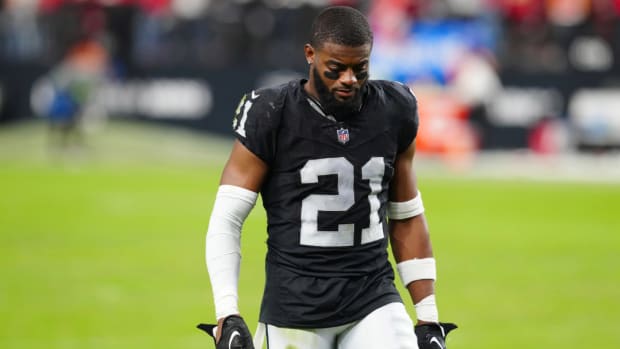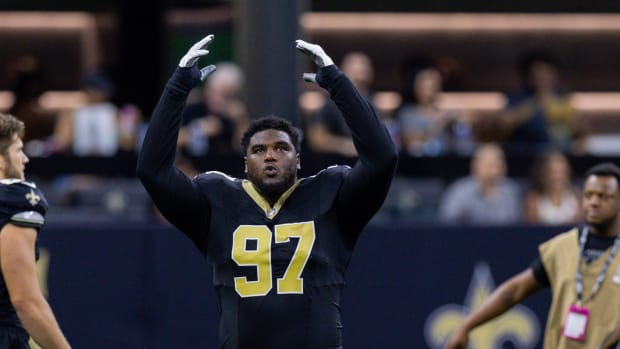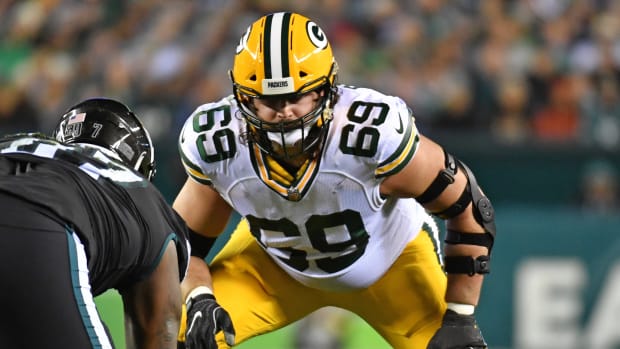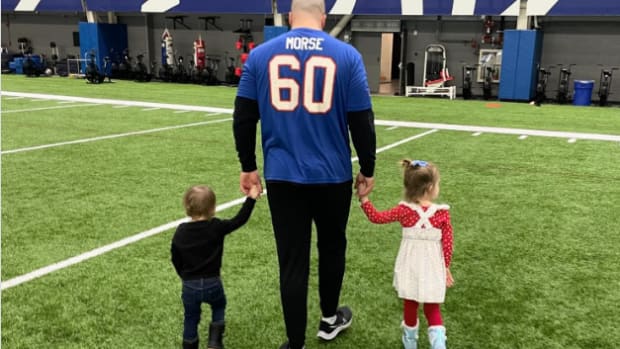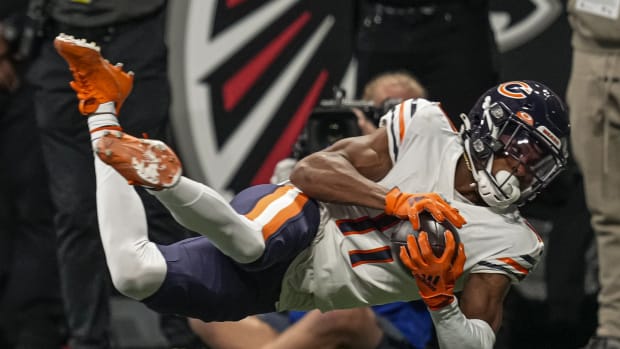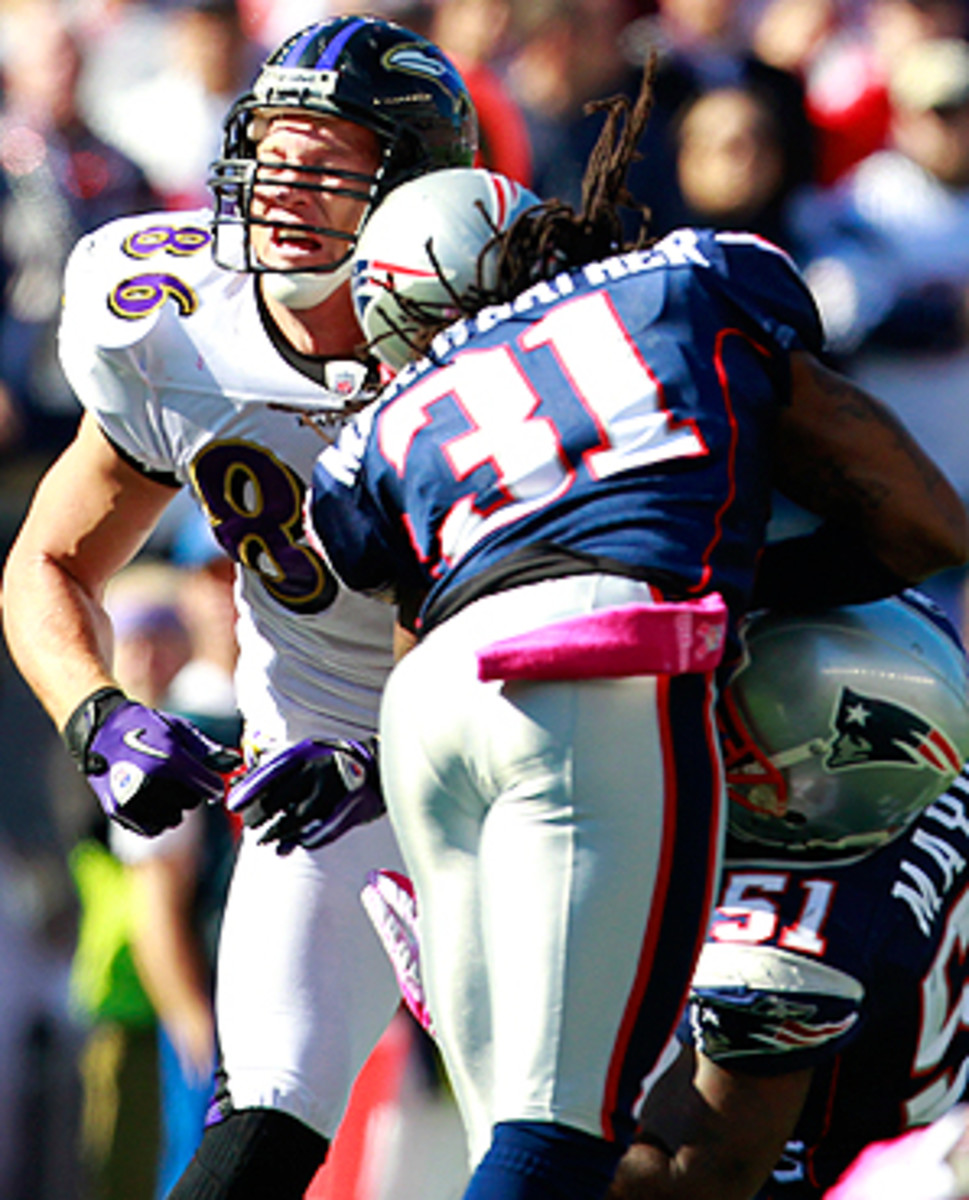
Players should hit the field before overreacting to NFL reinforcement
As the debate and clamor about dangerous hits in the NFL rages on this week, we're at that ridiculous stage now where we're getting players overreacting to the league's initial overreaction. And so it goes.
Part of the problem is that last Sunday morning no one was talking about the state of big hits in the NFL, but by Sunday night, everyone was. And when the league then responds to a small sampling of plays -- three out of nearly 1,700 by the count of ex-head of NFL officials Mike Pereira -- and starts talking suspensions and hands out some hefty fines, the perception gets created that a significant change in the way the game will be played has occurred almost overnight. Without warning or, seemingly, much thought.
Maybe it has, and maybe it hasn't, but we haven't even made it to Week 7 yet to find out, have we? No matter. We've got ESPN analyst and former NFL offensive lineman Mark Schlereth saying players should take the field and play two-hand touch in protest this weekend, and we've got Steelers linebacker James Harrison threatening to retire. Please. I understand he's not happy and probably got his feelings hurt by that $75,000 fine, but don't insult our intelligence with the notion that he's so mad he might walk away from a contract paying him millions in singular protest. No one gets that mad (or crazy).
The reality is the league always has and always will tend to overreact to an issue when a certain tipping point has been reached in relation to the image of the NFL. The league's image is inextricably linked to its bottom line, and the bottom line is never going to get completely overlooked in any situation.
That said, I believe the league's decision-makers got legitimately scared by some of the hits they saw last Sunday and want to do more to protect the players. That's a good thing, although it can be overdone. So when the NFL on Sunday night and Monday morning heard the outcry to do something from a few high-profile media voices -- NBC's Rodney Harrison and Tony Dungy, and our own Peter King, among them -- it did something in response. Almost immediately.
It was that immediacy that made it seem either way too knee-jerk or too dramatic for some, but I think it was overreaction for all the right reasons. Doing nothing about the dangerous hits that were on full display in Week 6 didn't seem like a wise option. But doing too much can set off a backlash and make the league appear to be rewriting rules in the middle of its season. The NFL says it's only enforcing its rules with stricter discipline for violators, but that's a point that easily can be lost on players and fans if they think too much change just happened too quickly, or if they think the new emphasis is misguided.
JOE POSNANSKI: Solving the NFL's hurt-vs.-injure paradox
There's a sense of confusion among players at this point, but my gut tells me most of it will dissipate when the games begin Sunday and the play very much resembles what they've come to know in the NFL. There might be the occasional ejection for the Brandon Meriweather-type egregious hit to the head or neck area, but I don't think we'll see an outbreak of players getting tossed out.
There might be more sizable fines to come, but I think eventually players will adjust to the new realities and play accordingly, the league will relax a bit, and we'll see the issue start to fade a bit into the overall tapestry of the season. Big hits, I'm guessing, will still be a part of football and of the allure of the game.
But those Week 7 games haven't been played yet, and we don't have anything to go on but our imaginations of what might come, and how much change might be in store. We don't do the wait and see thing any more, do we? We react, overreact, and then sometimes overreact again to the first overreaction.
Though this is a far bigger, more complicated and important issue than most, there are always topics cropping up in the NFL that follow this same general pattern in how they unfold. The change, the overheated reaction, and in time, the drifting of our attention span to other matters (and usually no time at all). Eventually we stop fixating on the height of the Cowboys video boards, how the umpire's positioning affects the no-huddle offense and whether the overtime rules are completely equitable. The game always adjusts and goes on.
Trying to protect the health of players is vital. So too is ensuring that most of what makes football football endures. But for now, let's just get to Sunday and see what happens. After all, there's always Monday and another chance to resume the clamor and debate.

































